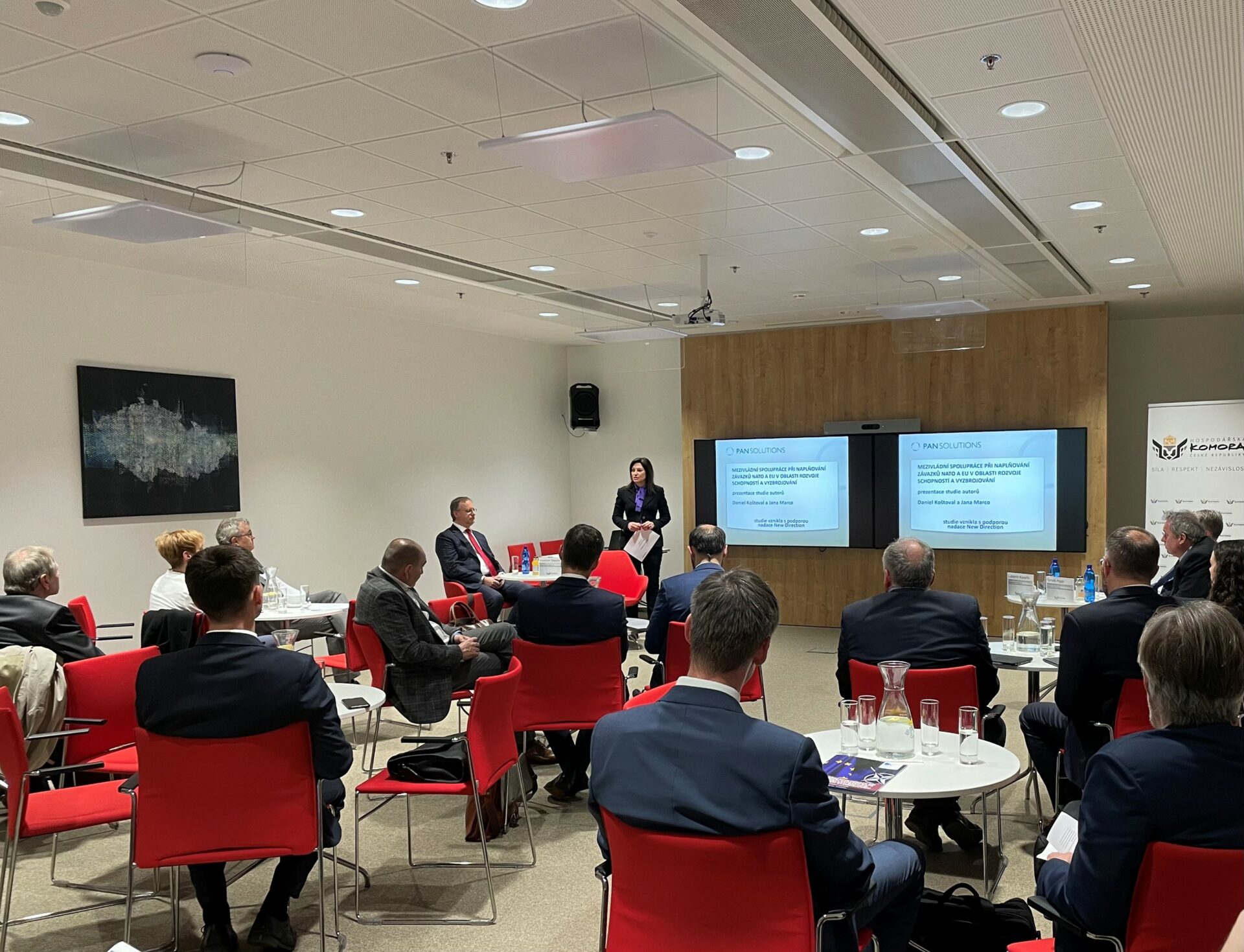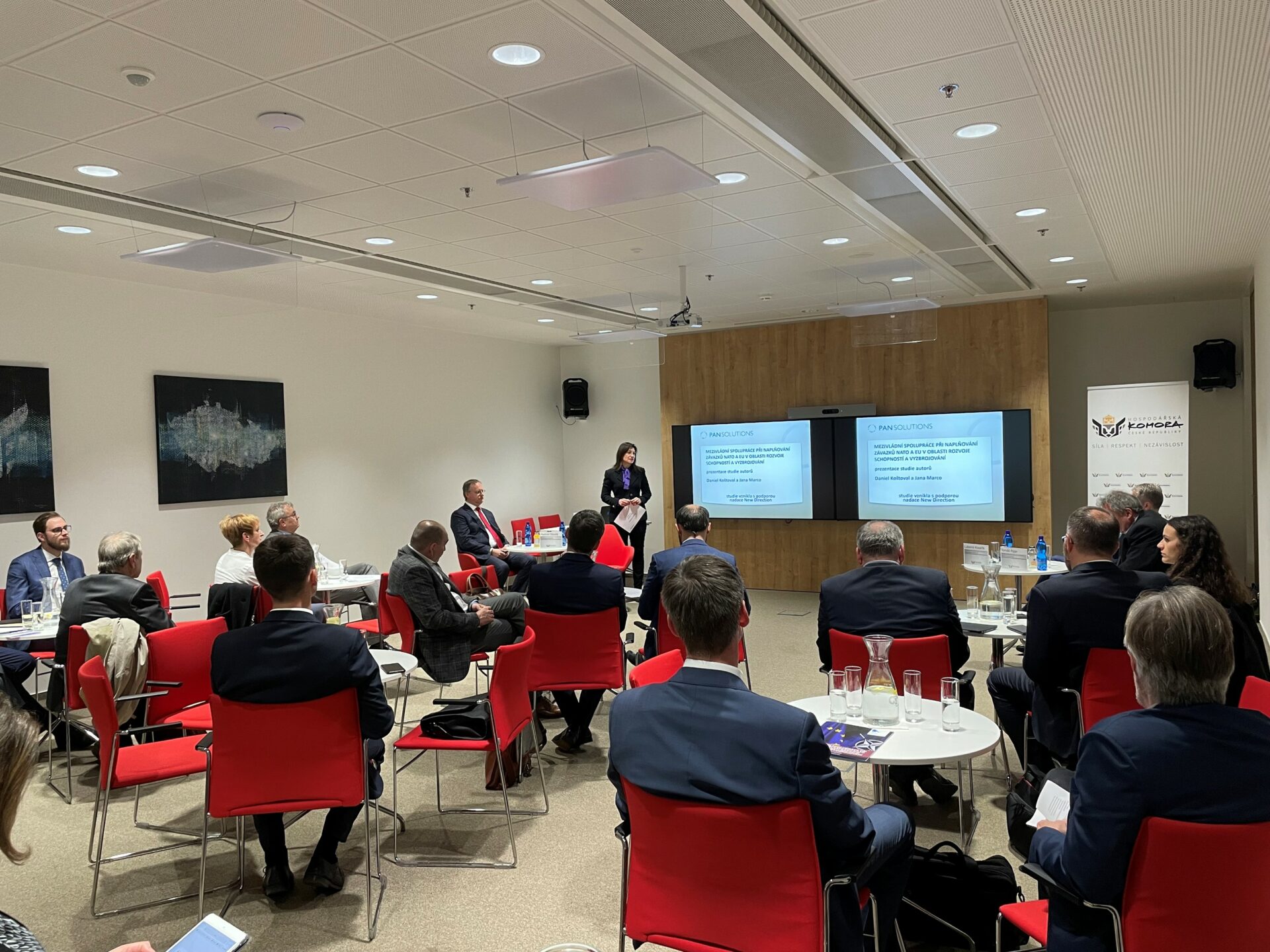G2G Cooperation on Meeting the NATO and EU Comminments in Developments of Military Capibilities
April 13, 2022

“Cooperation between governments in maintaining and developing military capabilities is currently not only necessary, but should be preferred. Legislation or interpretative views in the European Union do not in any way restrict this approach”, says a study prepared in cooperation with the Center for Transatlantic Relations of the CEVRO Institute and the New Direction Foundation by its authors Jana Marco and Senior Fellow PCTR Daniel Koštoval.
The study was presented to the professional public at a meeting of the Defense Industry Section of the Czech Chamber of Commerce on Wednesday 13 April. In addition to members of the section and experts from the Ministry of Defense, the Czech Republic Army General Staff and the Ministry of Foreign Affairs, the Minister of Defense Jana Černochová and the President of the Chamber of Commerce Vladimír Dlouhý also took part in the presentation.
This study first details the analysis of the nature of interstate relations, including their anchoring in current international public law. It focuses on the principle of sovereignty and independence of state entities in security and defense matters. The analysis shows that the intergovernmental principle in ensuring collective defense must be absolutely primary. Therefore, trade in military material, the end user of which should ultimately be only a state entity, must be subject to strong regulation and control, not a free market. Therefore, trade in military material should be conducted and operated primarily by governments, using state-owned enterprises and cooperating with domestic private defense companies. The study also addresses the reasons for the creation and objectives of European Union legislation on trade in military material. Its conclusion shows and underlines the need for government cooperation in armaments as a tool to ensure and protect the security and defense interests of the state.
The individual chapters and conclusions always take into account the specific case of the Czech Republic within the general approach to the subject of the study.



